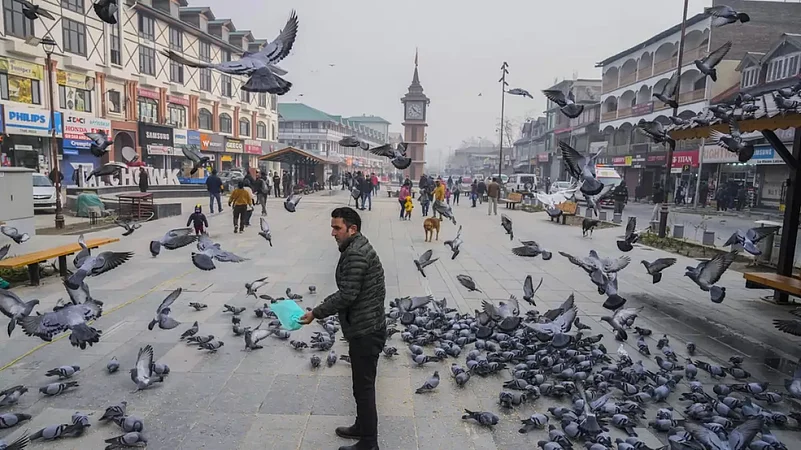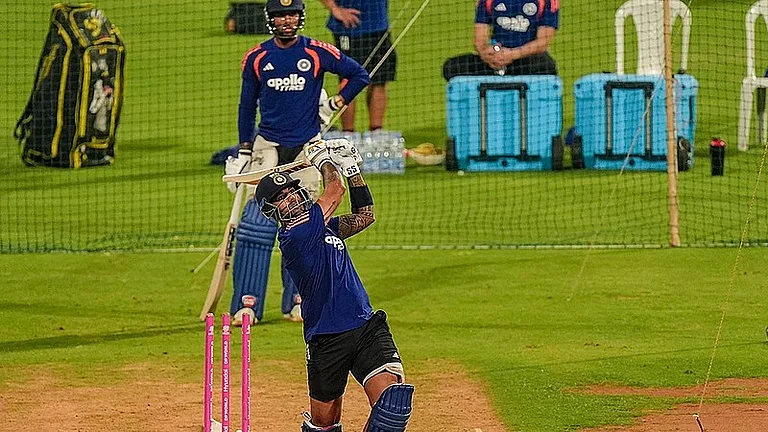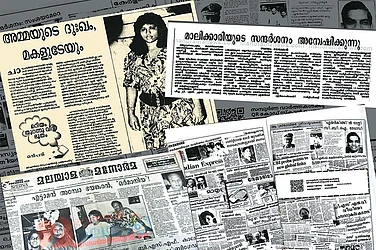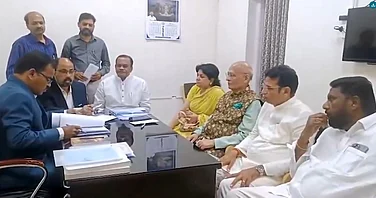The Supreme Court has upheld the abrogation of Article 370 saying it is “constitutionally valid”, while giving consolation to the petitioners by asking the Election Commission of India (ECI) to hold elections by September 2024 in Jammu & Kashmir (J&K) observing that “democracy in India cannot be put on hold until statehood is restored”.
In the Valley, people responded with silence to the Apex Court’s verdict, with most saying that they were hoping that the Supreme Court would restore Article 370. On December 10, the government issued a circular asking all social media platforms to act “responsibly and refrain from sharing rumours, fake news, hate speech or obscene, violent and defamatory content”.
While there was a general silence after the Supreme Court's judgement, shops were open in the markets, traffic was plying normally on the roads, and the internet was functioning normally across the union territory.
Outside the Bharatiya Janata Party (BJP) office in Srinagar, BJP leader Altaf Thakur said that after the ruling of the Apex Court, regional political parties should give up “emotional and sentimental politics”. Instead, he said, they should focus on developmental politics. He said the BJP welcomes the Apex Court’s decision and together with the BJP every party should work for peace and development. He said that no reaction from the people of the Valley over the verdict is an indication that people have moved beyond Article 370. Another BJP leader, Manzoor Bhat, said they welcome the decision of the Apex Court about upholding the abrogation of Article 370. He said that the BJP also welcomes directions for holding elections in J&K and restoration of statehood.
Former Chief Minister Omar Abdullah, whose party, the Jammu & Kashmir National Conference, was one of the earliest petitioners in the case, while reacting to the verdict said, “Disappointed, but not disheartened.” Omar said that he could have held a press conference, but the media is not allowed to meet him and he is not allowed to step out of his house. Omar said that he respects the Supreme Court and if he had no respect for the Supreme Court, he wouldn’t have approached it. Omar said he would be talking to his lawyers about whether there is a possibility of approaching the Apex Court again. Omar said the battle is not only a legal fight, but a political fight too. He said the apex court, in earlier judgments, had declared Article 370 as a permanent Article. However today, five judges have described it as a temporary article and upheld its abrogation, he said. He added that another bench of the apex court may reverse the present judgement. He said even after the three-judge judgement of the apex court that termed Article 370 as permanent, the BJP continued its fight to abrogate it and it took them a long time. He said his party will continue to fight for Article 370.
Peoples Conference leader Sajad Lone, whose party was also among the early petitioners, said the Supreme Court verdict on Article 370 is disappointing. “Justice yet again has eluded the people of J&K. Article 370 may have been legally obliterated, but it will always remain a part of our political aspirations,” he said. He went further and said that on the question of statehood, the Supreme Court sidestepped even commenting on it, “thus protecting the entire country from any future misuse, by citing precedence”. “Yet the same misuse was subtly endorsed in J & K. Let us hope that at a future date, ‘Justice’ wakes up from its slumber of pretence,” Lone said.
“The SC’s verdict on A-370 has finally put the decades-old K-dispute to rest. While many may choose to be hopeless and cling to the past, but I am assured that the verdict has given us a passage, especially to the youth. A new passage of Hope and Healing, of Peace and Prosperity,” wrote one Mohammad Tabish on X (formerly Twitter).
While the Apex Court was announcing the judgement, Lt Governor of J&K, Manoj Sinha announced that no J&K leaders have been put under house arrest. He described the “arrest of politicians” as totally baseless, saying, “No one has been put under house arrest or arrested due to political reasons in J&K.” He called it an attempt to spread rumours. However, two former chief ministers, Omar Abdullah and Mehbooba Mufti, took to X to rebut him, displaying chains and locks placed on their doors.
The Apex Court directed that the elections to the “legislative assemblies, which is one of the paramount features of representative democracy in India, cannot be put on hold until statehood is restored”. “We direct that steps shall be taken by the ECI to conduct elections to the legislative assembly of J&K constituted under Section 14 of the Reorganisation Act by September 30, 2024. Restoration of statehood shall take place at the earliest and as soon as possible,” the court observed without giving any directions.
Truth and Reconciliation Commission
Justice Sanjay Kishan Kaul, however, recommended the setting up of an impartial Truth and Reconciliation Commission to investigate and report on the violations of human rights both by the state and non-state actors at least since the 1980s and recommend measures for reconciliation.
“The Commission must be set up before memory escapes. The exercise must be time-bound. There is an entire generation of youth that has grown up with a feeling of distrust, and it is to them that we owe the greatest day of liberation,” said Kaul. “It is for the government to decide the manner in which the Truth and Reconciliation Commission must be set up, considering the sensitivities of the issues involved….The Commission must not turn into a criminal court, and must offer a platform for a dialogue.”
Abdullah was the first politician of J&K who came up with the idea of the Truth and Reconciliation Commission.






















